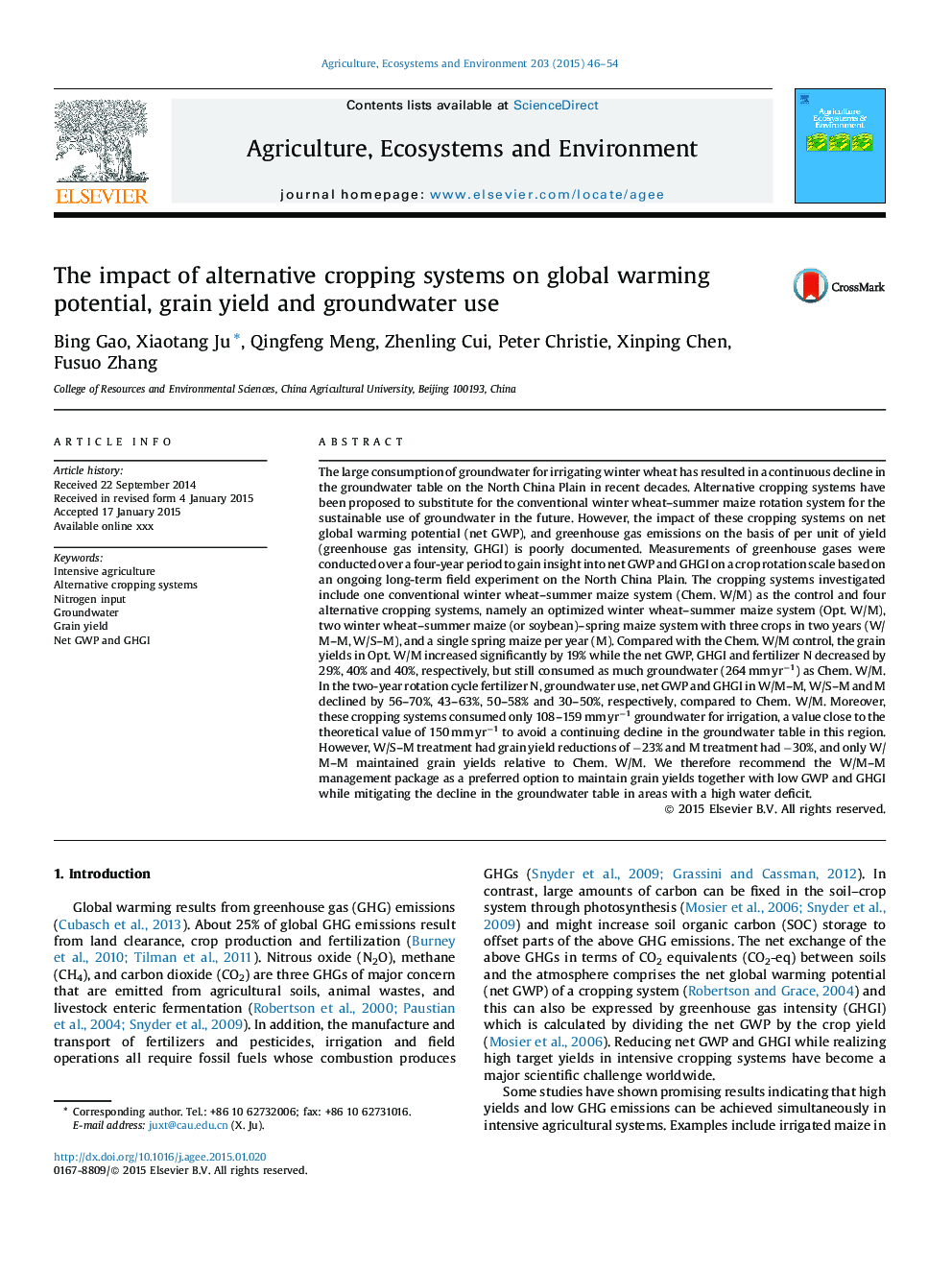| Article ID | Journal | Published Year | Pages | File Type |
|---|---|---|---|---|
| 8487761 | Agriculture, Ecosystems & Environment | 2015 | 9 Pages |
Abstract
The large consumption of groundwater for irrigating winter wheat has resulted in a continuous decline in the groundwater table on the North China Plain in recent decades. Alternative cropping systems have been proposed to substitute for the conventional winter wheat-summer maize rotation system for the sustainable use of groundwater in the future. However, the impact of these cropping systems on net global warming potential (net GWP), and greenhouse gas emissions on the basis of per unit of yield (greenhouse gas intensity, GHGI) is poorly documented. Measurements of greenhouse gases were conducted over a four-year period to gain insight into net GWP and GHGI on a crop rotation scale based on an ongoing long-term field experiment on the North China Plain. The cropping systems investigated include one conventional winter wheat-summer maize system (Chem. W/M) as the control and four alternative cropping systems, namely an optimized winter wheat-summer maize system (Opt. W/M), two winter wheat-summer maize (or soybean)-spring maize system with three crops in two years (W/M-M, W/S-M), and a single spring maize per year (M). Compared with the Chem. W/M control, the grain yields in Opt. W/M increased significantly by 19% while the net GWP, GHGI and fertilizer N decreased by 29%, 40% and 40%, respectively, but still consumed as much groundwater (264 mm yrâ1) as Chem. W/M. In the two-year rotation cycle fertilizer N, groundwater use, net GWP and GHGI in W/M-M, W/S-M and M declined by 56-70%, 43-63%, 50-58% and 30-50%, respectively, compared to Chem. W/M. Moreover, these cropping systems consumed only 108-159 mm yrâ1 groundwater for irrigation, a value close to the theoretical value of 150 mm yrâ1 to avoid a continuing decline in the groundwater table in this region. However, W/S-M treatment had grain yield reductions of â23% and M treatment had â30%, and only W/M-M maintained grain yields relative to Chem. W/M. We therefore recommend the W/M-M management package as a preferred option to maintain grain yields together with low GWP and GHGI while mitigating the decline in the groundwater table in areas with a high water deficit.
Related Topics
Life Sciences
Agricultural and Biological Sciences
Agronomy and Crop Science
Authors
Bing Gao, Xiaotang Ju, Qingfeng Meng, Zhenling Cui, Peter Christie, Xinping Chen, Fusuo Zhang,
